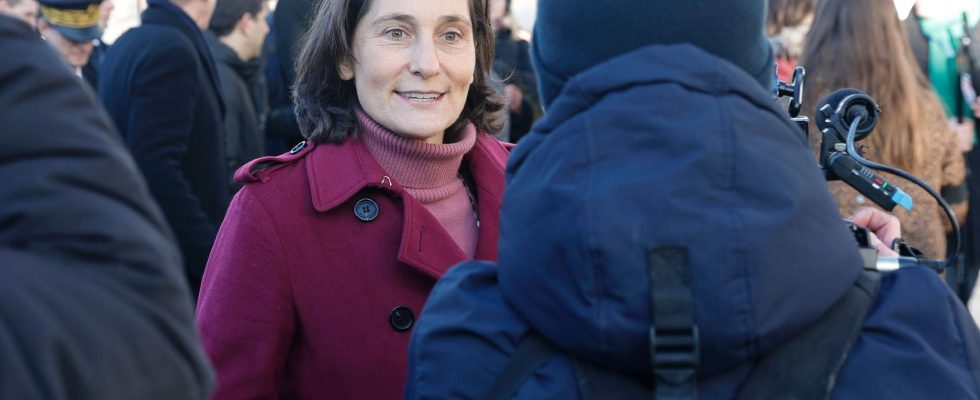It is a parchment infiltrated between two stones of the facade of the very young public school of Plougastel-Daoulas in Brittany. On paper, a handwritten certainty, almost a warning: “We will only save ourselves collectively with the school.” These words were chosen, written and slipped into the hollow of this wall a few years earlier by Mona Ozouf, author, in particular, of the formidable French composition, intimate story in which the philosopher and historian pays homage to the school of the Republic. Would Emmanuel Macron say otherwise? He who, last August, declared in Point, a handful of weeks after appointing Gabriel Attal Minister of National Education: “Given the issues, education is part of the president’s reserved domain. […] Why do I talk so much about school? Because it is the heart of the battle that we must fight, because it is from there that we will rebuild France.” Here is Gabriel Attal who, from the start of the school year in September, deploys, also announcing vague as a “clash of knowledge”, puts the debate around the uniform back on the table for the umpteenth time by proposing an experiment in 100 establishments, bans the abaya, invites itself to the 20 Hours…
Then, the disappointments of the fall (an immigration law gone wrong) and the desire for a big upheaval. Reflection, movement at the Elysée, return of a former advisor, Jonathan Guémas, who carves out this idea of presidential wish for the new year: “A civic rearmament.” Associated with a project that sounds pharaonic: “regeneration”. It goes without saying that the latter will pass through the school, the foundation of our Republic, whose mission consists of training students steeped in knowledge. Identified, pugnacious, praised for his dynamism, the young Minister of National Education seems to be the man for the job. The problem is that it is also that of “regeneration”, in the eyes of Emmanuel Macron. Express transfer to Matignon and rue de Grenelle feels neglected again. A strong minister, for what purpose? “Education is part of the president’s exclusive domain.”
Everyone calm down, Emmanuel Macron has more than one trick up his sleeve. He even has, according to an advisor, “an absolute machine”, ideal for the post of school minister: Amélie Oudéa-Castéra. Why she ? The controversy triggered by his comments on public school and the schooling of his children in Stanislas ended up evacuating this primary question. Because she “kicked the anthill to Sports,” enthused an Elysian strategist the day after her move to Education. She managed to fire all the bosses of federations in the world of yesterday that no one had not managed to turn so the president’s bet is to hope that she will deliver.” The example of political will, in short.
Disconnecting in trouble
It doesn’t matter that AOC is little known, less political than her predecessor, and probably also a little disconnected when she observes aloud during her first trip to a college in Yvelines that three of the students sitting in front of her are wearing sneakers; “the incarnation is the PR, and secondly Gabriel”, continued our interlocutor, still delighted. Ambition and coherence for education sacrificed in the name of regeneration?
But the choice to name it today seems almost anecdotal compared to that of maintaining it. By making erroneous comments from her first public outing to justify her choice of a private Parisian establishment for her sons, Amélie Oudéa-Castéra, in an instant, permanently deprived herself of the authority essential to reform. There is an iron law in politics: we do not find our power of action when controversy spoils credibility. Doubt swallows up everything except itself. Booed during her outings, let go behind the scenes by Matignon where people whisper that they would prefer “that she put it on mute”, forced to “deport herself from related acts” at Stanislas College, here is now her past at the head of the tennis federation and his record at the Ministry of Sports shaken up, tainted by the report of the parliamentary commission on sports federations.
In addition to a very high salary when she presided over French tennis, it is also “the casualness with which the Ministry of Sports ensured compliance with the laws and regulations in force regarding ethics” which is highlighted in the report. Which concludes with “the absence of political will”. Suddenly, the president’s “machine” seems to have seized up. “We will only save ourselves collectively with the school.” But who will save the school?
.
